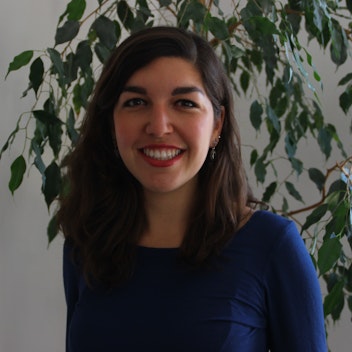Multilingualism – really? Understanding language policies in South Tyrol

South Tyrol in the north of Italy is characterized by its three autochthonous language groups, German, Italian and Ladin, and is very proud of its mix of languages. Yet, migrants struggle to navigate the rules of languages implemented in the province.
When Mariam, a 42-year-old Moroccan woman decided to move to South Tyrol, a province in the north of Italy, she thought she would find an area rich in its offering of different languages and cultures. She was somewhat disappointed when she moved to the province and found out that South Tyrol was not as intercultural as the provincial government usually describe it. The diversity she did find however was rather removed from her original notions, being one that has been institutionally structured in a system that separates people into groups, with little flexibility to move between these groups, especially if you are a migrant. The region’s geohistorical past led to the co-existence of three distinctive ethnolinguistic groups: German, Italian and Ladin. With the relatively recent immigration movement in this area, the latest surveys show that today almost 10% of the population is composed of migrants. And as a result, diversity in the territory has been further enriched. After some years living in this autonomous province, Mariam found out that migrants are little considered by the provincial government when it comes to the management of diversity, which is more focused on the three local ethnolinguistic groups.
Language Policies and the Declaration of Linguistic Affiliation
In 1972, after Mussolini’s dictatorship and many disputes between the three ethnolinguistic groups, the Second Autonomous Statute was created to provide a system of Proportionality to establish, in principle, a more equitable form of authority centered on quotas. The Proportionality is organized by way of a declaration of linguistic affiliation to be submitted anonymously during the linguistic census. In this document, people declare that they belong or adhere to one of the three previously mentioned local ethnolinguistic groups. Having this data, positions in public administration as well as resources for welfare and cultural activities are shared between the three groups. In that sense, to obtain these benefits, citizens must demonstrate that they are part of the target ethnolinguistic group by submitting to the Court a personal and individual Declaration. When an officer knocked on Mariam’s door saying that she should submit this document, she was not sure how to declare herself. After all, she was not a native speaker of either Italian or German and Ladin was a language she had only heard about. The only possibility was to choose one of the three local groups to be part of, with no space provided for individuals speaking another language, nor for people speaking two or all of them. Where migrants are concerned, citizens from outside Europe were only allowed to submit this Declaration from 2015 onwards, and even then, this only applied to those holding a long-term permit, resulting in the creation and exacerbation of hierarchy within the migrant population.
The Declaration has been the target of much criticism since its implementation, and some scholars claim that it contributes to broadening the divide between people from different ethnolinguistic groups, leaving little place for social cohesion. This institutional division is embedded in the way of life in the region, since schools are divided into three different systems and leisure activities are also targeted to specific ethnolinguistic groups. As Mariam is not a native member of either of these three groups, she feels uncomfortable having to pick one of them to take part in so she can better integrate and interact in society. In this sense, it is possible to say that this policy does not include the entire linguistic and cultural diversity that exists in South Tyrol, which goes far beyond the three official languages.
The Second Autonomy Statute: After the controversies of the First Autonomous Statute, the Second Statute gives legal, administrative and partly financial independence to the province, and it implements the system of Porportionality between the three local ethnolinguistic groups.
How migrants experience language policies in South Tyrol
Talking to other people who have migrated to South Tyrol, Mariam found out she was not the only one that experienced difficulty navigating the tripartite system implemented in the province. The lack of knowledge about the Declaration on the part of some of the migrant population is significant: some of whom expressed frustration in discerning the purpose of the document or in some cases even declared total lack of knowledge about the policy. Among those who have shown awareness of it, there was strong criticism and rejection, the Declaration being classified as incompatible with the European context and the current linguistic diversity present in the province. Ylka, a 47-year-old woman from Albania, states: “there is a box, and you should decide which box you should be in. [...] In my opinion this thing should not exist. It makes historical sense for the South Tyroleans, but in my opinion it should be an option, not an obligation”. This rejection to the categorization of people based on the language they speak is also indicated by Klaus, a 40-year-old German man. He says that although for him it was not a hard choice, since he is a native speaker of German, he believes that “putting [people in] a certain box, makes you feel stuck in this system”. For Xiomara, a 41-year-old Venezuelan woman, being an outsider, she felt uncomfortable having to pick one of the three groups to take part in, she says: “I can't say that I am a native German speaker, and I can't say that I am a native Italian speaker”. Although Xiomara understands that this policy was imported to guarantee the rights of German and Ladin speakers after Mussolini’s dictatorship, she believes that to “continue with that separation of languages is now useless”, since in the context of the European Union “the request is different". These statements reiterate the considerations of some within the scientific community, who also claim that the policy of Declaration is anachronistic and in conflict with the needs of post-modern society, which should be more open to new languages and cultures.
Mariam and her fellow migrants also state that there is a constant need to choose between one of the three ethnolinguistic groups in daily activities too, such as picking a school for their children or participating in cultural and sport events. Aisha, a 35-year-old from Morocco says: “For me it would be great [to have bilingual schools] for everyone. That's why I tell you that the policies are wrong, they exacerbate division”. This separation is also criticized by Klaus who says: “There are two soccer clubs in Bressanone, one Italian-speaking, one German-speaking. To play soccer! But how much do you speak in a soccer match?”. The perspective of the migrants interviewed reveals their sentiments: this policy builds invisible barriers among the population and creates obstacles in the daily lives of people who do not feel part of any of the three local groups. There is an uneasy feeling of having to make a choice of a language group that does not effectively consider the language spoken by them to participate in everyday activities. For Mariam and her fellows, it would be easier to simply have one bi or multilingual system that fosters the cohesion of society.
Safeguarding of autochthonous groups’ rights promotes integration in society
Although the model based on a system of quotas and the Declaration implemented in South Tyrol has long been considered a successful way to create tolerance among the three local ethnolinguistic groups, these policies do not include migrant populations, since allophone individuals are neglected, or little considered. In such a diverse context, it is important that cooperation and respect toward new minorities go hand in hand in the safeguarding of autochthonous groups’ rights to promote more cohesion and integration in society. In this way, perhaps Mariam’s own expectations of finding South Tyrol as a place of encounter for diverse languages and cultures could finally be met instead of her feeling stuck in, and excluded from this tripartite system.

Citation
This content is licensed under a Creative Commons Attribution 4.0 International license except for third-party materials or where otherwise noted.

What does “integration” mean in a city like Innsbruck? Insights into a local scientific debate



“Io credo nell’America”: l’esperienza migratoria italiana verso gli USA
 Maria Ferrari
Maria Ferrari
Between two worlds: The changing experience of Iranian migrants in South Tyrol
 Yasmin Bagheri
Yasmin Bagheri